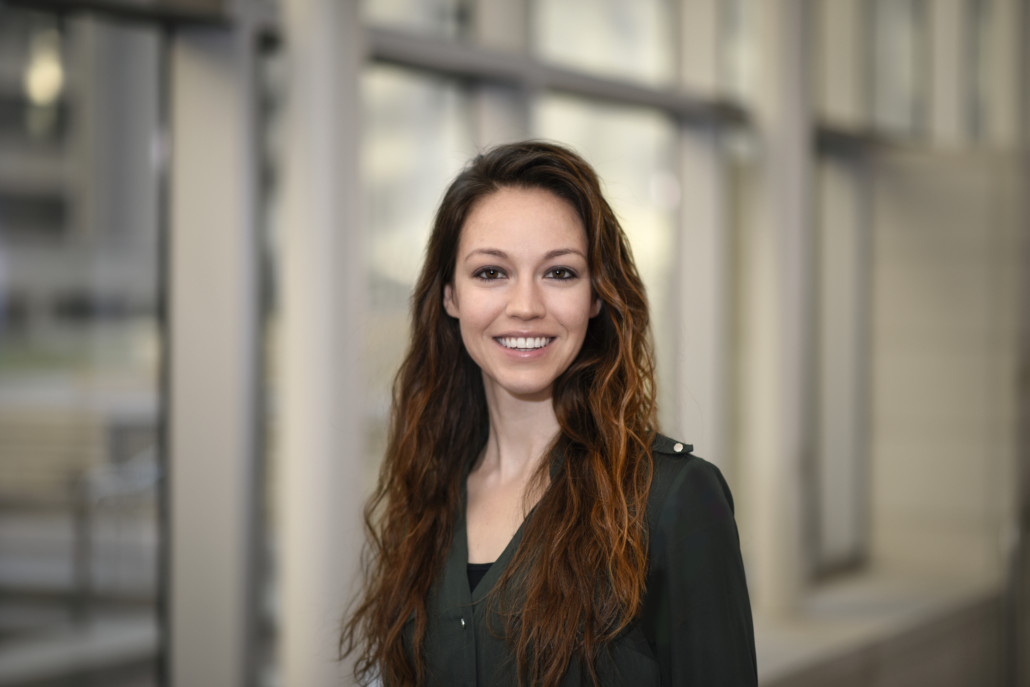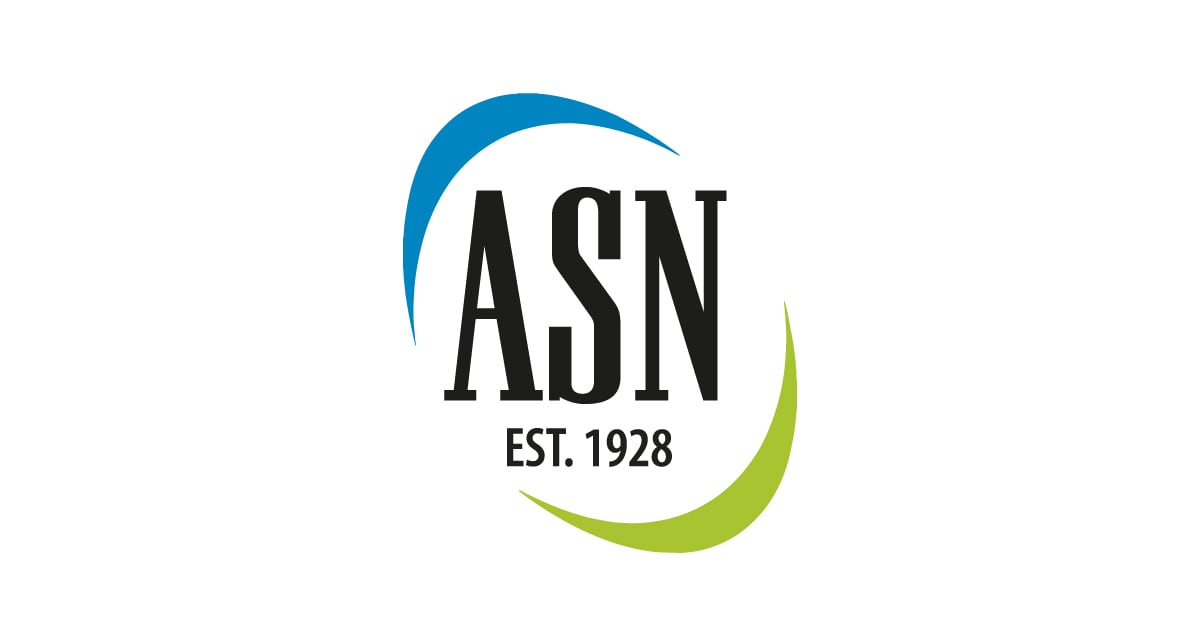Get to know ASN Early Career member, Dr, Bridget Stroup, and her passion for evidence-based and systematic approaches to wellness and nutrition across the lifespan. Learn about the reason why she was compelled to pursue her PhD after earning her RDN and how her fellow ASN members and colleagues helped shape her personal and professional growth. Read our full interview below.

What drew you to the field of nutrition science, research, and practice? Who are some of the individuals that influenced you and what events or opportunities would you attribute to your academic and professional success?
From an early age, I have had a passion for understanding wellness and nutrition across the lifespan with an evidence-based and systematic approach. I knew that how I ate at an early age could impact my health/wellness at an older age. During my dietetic internship, I realized many nutritional guidelines were based on consensus or clinical study populations that were not generalizable to the larger community. By the end of my dietetic internship, I found myself applying to the PhD program in the Department of Nutritional Science at the University of Wisconsin-Madison.
During my PhD, I had the opportunity to contribute to the evidence-based development of glycomacropeptide (GMP) medical foods for the treatment of phenylketonuria (PKU) through an FDA-funded Phase II/III clinical trial under the supervision of Dr. Denise Ney, PhD, RD (Ney DM, Stroup BM et al. Am J Clin Nutr 2016; 104(2):334-345). Since the publication of this work, GMP medical foods has been approved for the treatment of PKU in at least 9 countries (including the U.S.) and has been incorporated into the 2016 nutritional management guidelines for PKU (Singh RH et al. Mol Genet Metab 2016;118(2):72-83).
The most influential experience of my career was my positive PhD experience with Dr. Ney (PI) and the Ney Lab research team, which included our laboratory manager, Dr. Sangita Murali, PhD, and PhD lab mate, Dr. Emily Sawin, PhD. Our synergy as a research team helped me develop as a scientist and as an advocate for evidence-based nutrition for individuals with rare diseases from the researcher’s perspective. I’m forever grateful to this team.
Tell us about your current position and reasons for which you chose this career path.
I am currently a consultant at a large, global management consulting firm. As a consultant, I get the opportunity to collaborate with teams of consultants to help clients diagnose problems within their businesses and innovate data-driven solutions across a variety of industries and functions. I chose a career in management consulting due to the professional growth opportunities, ability to harness my problem solving and analytical skills developed during my PhD training, and the opportunity to work with collaborative, diverse teams on projects that have positive social impact. My PhD and postdoctoral training spanned studies investigating aspects of inborn errors of metabolism in human subjects, mice, and cells. With those research experiences, I learned certain styles of questions. Now, as a consultant, I’m enjoying taking the time to learn how to ask new questions that emphasize impact.
You are both a PhD and RDN, please tell us the importance of having the RDN credential in addition to the PhD degree for you.
For me, obtaining the RDN credential is where my passion for evidence-based nutrition began. Being in the clinical environment as a dietitian gave me the clinical and translational context that was essential to understand the gaps in knowledge or practice that drives impactful research to improve the quality-of-life for others.
With my PhD, I had the opportunity to participate and drive aspects of research projects as a PhD candidate at UW-Madison and postdoctoral associate at Baylor College of Medicine. My RDN credential not only inspired new ideas for my research, but it also bolstered my communication effectiveness across diverse audiences, including individuals without scientific backgrounds (i.e., patients and families), clinical physician and dietitian colleagues, PhD-scientists, and physician-scientists, et cetera.
What role does service in leadership positions play in your professional life?
Being the ASN Early Career Nutrition Interest Group’s (ECN) Awards Chair gave me the opportunity to develop leadership skills, which included leading meetings with an agenda, learning to speak up, making decisions, delegating tasks, and working together with colleagues who held diverse viewpoints. Because I was one of the more junior members within ECN, it was a good experience to learn how to communicate collaboratively despite differing perspectives and I learned to accept feedback from team members while developing ways forward for the goal at hand. I felt lucky to be surrounded by a group of early career nutrition professionals and ASN staff who were understanding and supportive as I developed these leadership skills.
In addition to my leadership role as the Awards Chair for ASN’s ECN group, I was also the Research Committee Co-Chair for Genetic Metabolic Dietitians International (GMDI), which is a professional society comprised of dietitians and other clinical/research professionals that specialize in inborn errors of metabolism. My main role as the Research Committee Co-Chair was to coordinate the submission and review of our bi-annual conference abstracts and our grant program (https://gmdi.org). This leadership role helped me to grow my network and leadership skills in the rare disease space.
Collectively, these leadership roles at ASN and GMDI gave me the opportunity to expand my network, take on responsibilities that had a social impact in the nutritional science and rare disease space, and unlocked writing and speaking opportunities. Together, these leadership experiences helped my CV to stand out in my recent applications to management consulting firms. Furthermore, my enthusiasm for nutrition and rare diseases was evident when I was asked about these experiences during my interviews.
Are there any ASN activities or programs that encouraged you to become more involved in the Society?
I received an invitation to take a more active role in ASN as the Awards Chair through ASN’s Early Career Interest Group. This was an excellent opportunity to get to know nutrition science professionals in academic and industry environments across career stages. As the Awards Chair, my primary role was to review and coordinate the application and abstract review process for the Research Competition Awards for early career nutritional science professionals (i.e. postdocs and faculty within 5 years of PhD receipt) for ASN’s annual Nutrition Conference. In addition, I was also part of a small working group that piloted a Mentoring Program for early career nutritional professionals. I’m passionate about helping early career professionals harness opportunities that supplement their professional development for their next career steps. Being involved in this type of work helped to energize me and increase my overall satisfaction with my own career and professional development.
What advice would you give to ASN members looking to advance in their careers or take risks for their professional development?
- Network.
a. Be kind and professional and ask questions. Doing so demonstrates your interest and curiosity. Furthermore, anyone can be a relevant part of your network someday, and you can’t be sure where you will be in the future.
b. Diversify your network to include individuals with different backgrounds, education, and institutions.
- Leverage social media.
a. Use social media (i.e. LinkedIn, Twitter etc.) to build your brand and your network.
b. Identify and connect with individuals on social media whose careers you admire. Take a look at how they approach their career journey.
- Regularly evaluate where you are, where you want to be, and what you need to do to get there.
a. Pursue career exploration throughout your life. The world is constantly changing, and so are you.
b. If you don’t like where you are or where you’re headed, brainstorm ideas with friends or colleagues that you trust and develop a plan with a timeline to implement changes.
- If you are a trainee, getting involved in a professional society early can help you to expand your network and provide leadership opportunities that are relevant for future applications and interviews.
How can ASN as an organization of individual members help current and future scientists find career growth opportunities?
Many jobs and added opportunities are realized through personal networks, not cold contacting through posts and messages. ASN provides leadership opportunities for trainees and early career professionals to network with each other and opportunities to get experience with leadership skills that many may not be able to access as PhD candidates or postdocs.
Working with colleagues on committees through professional societies can help establish professional relationships and contacts that can lead to future scientific collaborations, in addition to opportunities that involve speaking at scientific conferences, informational webinars, scientific writing opportunities, and non-peer reviewed articles. All these activities help to bolster professional CVs for future faculty or industry applications, in addition to putting together the application to earn tenure for those at the assistant professor-level.
For example, my involvement in ASN as the ECN Awards Chair led to an invitation to lead a professional development webinar in December 2021, titled “How to Promote Yourself and Advance Your Career as an Early Career Individual” in collaboration with multiple ASN ECN members, including Dylan Bailey (prior Nutrition Specialist at Ketchum, Inc.) and Dr. Melissa Fuster (Associate Professor, Tulane University). This webinar opportunity received positive feedback from participants regarding the relevance and utility for their early career development. Additionally, leading this webinar was an important leadership and professional development opportunity for me that spanned the design and planning, promotion, webinar delivery, and post-webinar evaluations in collaboration with a talented team of ASN staff and ECN members.
Thank you for sharing your professional experience and your passion for collaborative growth. Lastly, what activities do you like to do when you are outside of the workplace?
In my spare time, I enjoy bouldering with my husband (Zak), hiking in national parks, cooking using America’s Test Kitchen cookbooks, sourdough bread baking, and spending time with my long-haired tortoiseshell cat (Freya).




